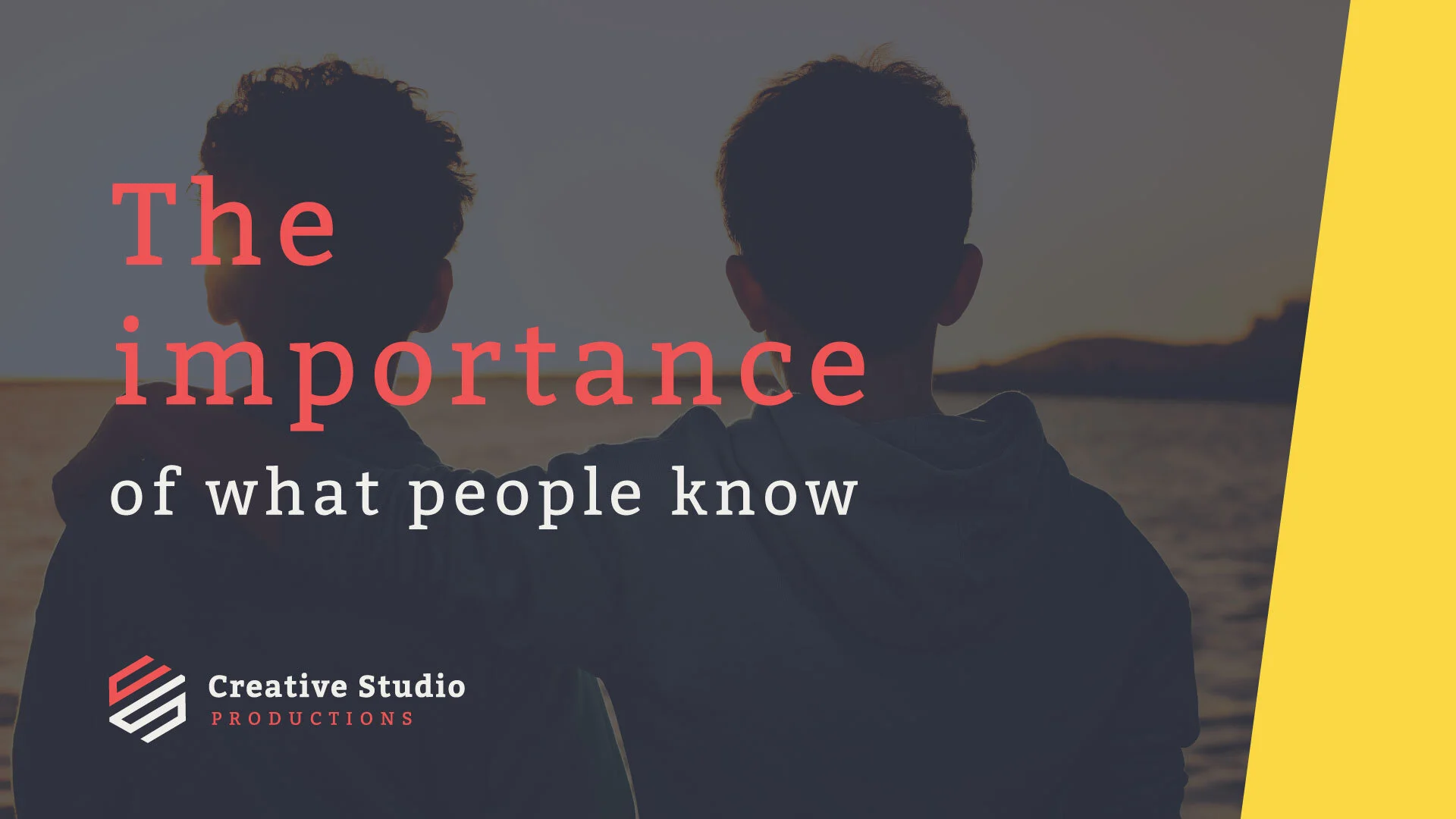The Importance of What People Know
The Importance of What We Want People to Know
Today's topic is the importance of what we want people to know, and I know we have to get to that, but can I just share some exciting news with you first? Today is the day we at Creative Studio Productions officially open our doors. Before this, my business partner, Ben, and I were doing work on our own. This last year we decided to combine our efforts and merge into Creative Studio Productions! I am so thrilled. But I digress...
Last week, we looked at the important question of what we want people to feel in our story based marketing. We talked about how feeling was important to establish a common experience to our audience. This week we are talking about the importance of what we want people to know. I’ve done a lot of video work and the question, “what do we want people to know?”, has helped define the direction of the story we are trying to tell.
Storytelling is Also Important in Religion
Before I owned my own business I was also a Pastor. And, no I am not going to turn this into a diatribe about faith. But, regardless of what you believe about Jesus, I want you to look at the person of Jesus with me, whoever you may think he is.
Jesus was a storyteller. He used stories to convey his message to the world. Either he was who he said he was, or he was just really good at influencing people with story and he was completely crazy. I'll leave that up to you to decide. Here is one of the stories Jesus told...
“There was once a man traveling from Jerusalem to Jericho. On the way he was attacked by robbers. They took his clothes, beat him up, and went off leaving him half-dead. Luckily, a priest was on his way down the same road, but when he saw him he angled across to the other side. Then a Levite religious man showed up; he also avoided the injured man. A Samaritan (who was an outcast to the religious people was) traveling the road came upon him. When he saw the man’s condition, his heart went out to him. He gave him first aid, disinfecting and bandaging his wounds. Then he lifted him onto his donkey, led him to an inn, and made him comfortable. In the morning he took out two silver coins and gave them to the innkeeper, saying, ‘Take good care of him. If it costs any more, put it on my bill—I’ll pay you on my way back.”
Understanding The Story
After reading that, how could you not dislike religious people? I mean they were the bad guys in the story. But that wasn’t the point of the story. The point of the story was to convey a feeling of compassion for a person in need. And I think we all can relate to that feeling regardless of any religious association.
However, that story ended up angering some people because of who the Sameritan was. So, Jesus had to set the record straight. He went on to explain, you don’t have to be a “perfect religious person” to do the right thing. You just have to care.
He is setting up for the second question we ask as it relates to story based marketing. What do we want people to know? If you missed the first two sessions on story-based marketing, links will be below.
What Do You Want People to Know About You?
What do you want people to know about you, your product or brand? Let’s say you have a product that is a kitchen gadget. Oftentimes you'll see those bad infomercials with bad acting and products breaking and falling all over the place. You know what I am talking about. But a good story-based marketing direction would be to look at the importance of time.
You want to convey a story that talks about making sure you can spend every spare minute you have with your family or doing what you love.
When you make their family or something that they love the focus of your marketing, they are listening and feeling a sense of desire to do more of that. With that feeling in place, now let them know what it is you want your gadget to do.
Storytelling Marketing is About Solving Problems
You could say, “this gadget is designed to be a time saver so you can spend more time with__________”. You didn’t talk about how awesome the product was, or how it works. You gave them a solution to a problem they all felt with a common belief.
That’s how you sell your product, brand or service. Not by telling people what your product does, but how it can help solve a problem, that without your product they may have. That’s what you want people to know.

